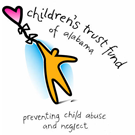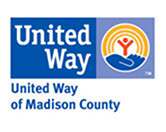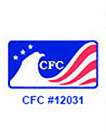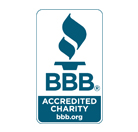What is NCAC’s Pathways Model?
By: Linda Cordisco Steele, M.Ed., LPC
Director of Forensic Interview Training and Services
 When you think of a pathway, what comes to mind? Perhaps a “winding path leading through a meadow to a special location such as a waterfall or picnic spot” or perhaps a “racecourse that runners dash along to reach the finish line” or possibly a “a network of interconnecting neurons along which nerve impulses pass.” What these three examples have in common is that in each case the pathway is a track or route that someone or something travels to reach a desired destination. The pathway we are inviting you to travel also has a clear destination; but of a different kind. This pathway is the journey from being a novice forensic interviewer to a competent, confident, and flexible forensic interviewer.
When you think of a pathway, what comes to mind? Perhaps a “winding path leading through a meadow to a special location such as a waterfall or picnic spot” or perhaps a “racecourse that runners dash along to reach the finish line” or possibly a “a network of interconnecting neurons along which nerve impulses pass.” What these three examples have in common is that in each case the pathway is a track or route that someone or something travels to reach a desired destination. The pathway we are inviting you to travel also has a clear destination; but of a different kind. This pathway is the journey from being a novice forensic interviewer to a competent, confident, and flexible forensic interviewer.
It is helpful when one begins a long trip to have at minimum a plan and at best a roadmap. My husband is a runner and, in the weeks before a race involving a new course, he locates the map for the course on-line and either walks, runs, or drives the route. It helps him to plan for the easy and difficult stretches and obstacles to be aware of as well as optimize his preparation.
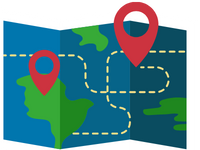 Use of an interview protocol is often compared to having a roadmap when embarking on a long journey. Protocols provide structure and strategies for the conversation even while allowing for flexibility, depending on the needs of the child and complexity of the case. In contrast, following the completion of a nationally recognized training, forensic interviewers have been given little guidance other than a recommendation for on-going training and peer review. The result can be rather haphazard and may skip over a targeted focus on essential skills and knowledge. NCAC (National Children’s Advocacy Center) now wants to provide the roadmap.
Use of an interview protocol is often compared to having a roadmap when embarking on a long journey. Protocols provide structure and strategies for the conversation even while allowing for flexibility, depending on the needs of the child and complexity of the case. In contrast, following the completion of a nationally recognized training, forensic interviewers have been given little guidance other than a recommendation for on-going training and peer review. The result can be rather haphazard and may skip over a targeted focus on essential skills and knowledge. NCAC (National Children’s Advocacy Center) now wants to provide the roadmap.
The over-all goal of NCAC’s Pathways approach is to provide direction, emphasize areas for essential skill development, and highlight multiple areas of necessary competence. Rather than one, there are actually four pathways for increasing knowledge and encouraging skill development and resilience. All four pathways are important; but some are most appropriate for a newly practicing forensic interviewer and others provide opportunities for ongoing growth and improvement of our craft.
I want to introduce the four pathways with a brief description of each and will dive into each individual pathway in more depth in upcoming posts. The four pathways are (1) skill development, (2) supervision and mentoring, (3) working within the system, and (4) special issues.
- The skill development pathway is highly recommended for new forensic interviewers, as well as for forensic interviewers who have a need to improve and solidify their understanding and implementation of the bedrock principles and skills of forensic interviewing. These skills include nuanced and flexible question design, learning to truly listen to a child and incorporate their words into ongoing questions, providing social support, and thinking critically and making conscious decisions throughout the entire forensic interview process.
- The supervision and mentoring pathway is appropriate for more experienced and confident forensic interviewers to help them develop effective approaches to providing ongoing guidance and support to newer interviewers. Good supervision helps in developing resilience and increasing job satisfaction. We want to keep good forensic interviewers in the field and to keep them growing.
- While an essential component of a child abuse investigation, the forensic interview takes place within the multi-disciplinary team approach to investigation of child abuse. Forensic interviewers find themselves working with professionals from other disciplines such as law enforcement, child protection, and attorneys as well as medical providers, victim advocates, and mental health professionals. Understanding the goals and limitations and boundaries of each discipline leads to better case outcomes and improved teamwork. Testifying as a witness in a criminal or civil proceeding will be part of the work experience for some forensic interviewers.
- The specialized topics pathway will zero in on issues related to the developmental, cultural, language, or trauma needs of some child witnesses which may require additional knowledge and strategies. Other topic specific trainings will address interviewer adaptations when working in unique case circumstances such as exploitation, trafficking, and multi-victim cases.
Our decision to adapt our approach to designing and offering on-going training and guidance has grown out of years of experience both in interviewing child witnesses and in training forensic interviewers, in-depth knowledge of the research on forensic interviewing, and dedicated study of best practices in supporting adults in making changes in long-standing behaviors to achieve their goals. We hope that you will join is on this journey.


